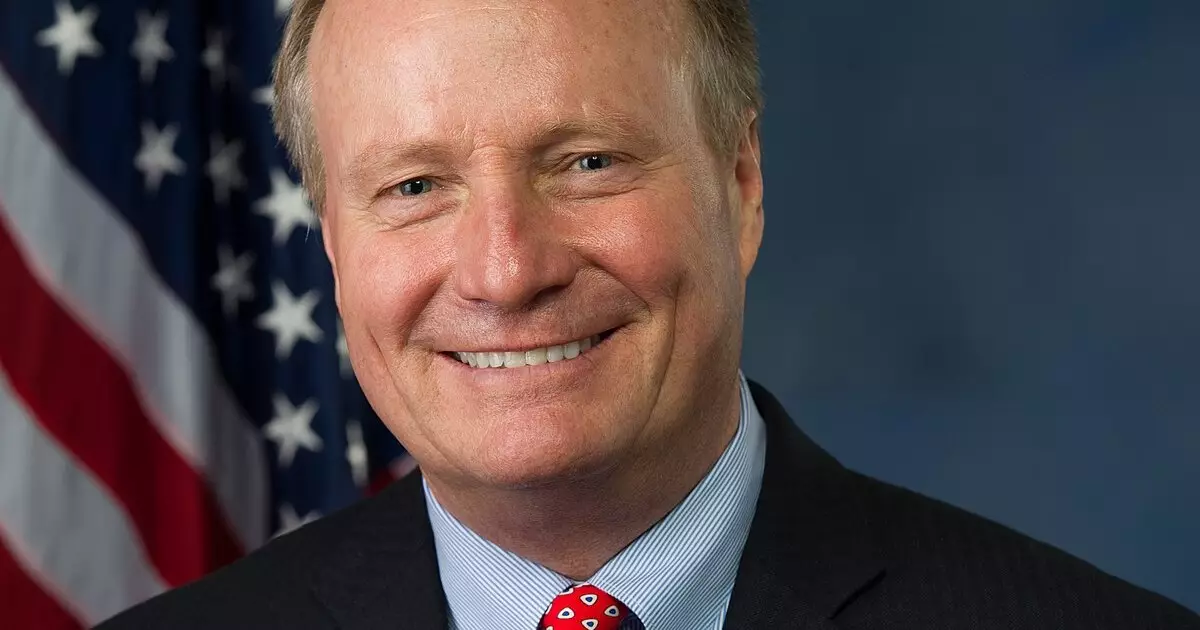Washington D.C.’s call for an enhanced budget amid security concerns has generated significant discussion in recent legislative discussions. The District’s proposal for fiscal year 2025 seeks a considerable $932 million from Congress, presenting an increase of $142 million from the previously enacted budget. This request not only emphasizes the need for more robust emergency preparedness, especially in light of the upcoming Presidential Inauguration, but also serves as a window into the broader economic and political dynamics that shape the District’s financial landscape.
The allocation of $47 million specifically earmarked for emergency preparedness opens a conversation about the evolving nature of security in urban settings. Rep. Dave Joyce’s acknowledgment of the seriousness of these preparations speaks volumes about the shifting priorities of local government officials in an era marked by increased threats to public safety. This is not just a matter of funding; it represents a recognition of the intertwined relationship between national politics and local governance.
At the hearing convened by the House Appropriations Financial Services and the General Government Subcommittee, key city officials, including Mayor Muriel Bowser, provided testimony in support of the budget increase. Mayor Bowser asserted the District’s financial resilience, highlighting its record of maintaining balanced budgets for 29 consecutive years and achieving a coveted triple-A bond rating. Such financial credentials lend credibility to the District’s claims, suggesting that it can manage its fiscal responsibilities adeptly despite the economic uncertainties posed by external factors.
Furthermore, the historical context of this testimony is noteworthy. It marks the first occasion in nearly 15 years that a Washington mayor has appeared before this committee, signifying a shift in the relationship between local and federal governance. This moment could be interpreted as an attempt to reaffirm Washington D.C.’s unique status—one that seeks to assert its independence while still recognizing the essential need for federal support.
The dynamic between Washington D.C. and Congress is a double-edged sword. While the federal government is responsible for reimbursing the city for expenses related to federal activities, it also holds significant oversight power that can complicate local governance. City Council Chairman Phil Mendelson’s comments highlight the vulnerabilities Washington faces due to federal instability. The risks associated with delayed appropriations or threats of government shutdowns are not merely bureaucratic issues; they have real implications for the District’s cost of borrowing and overall economic health.
The challenge facing Washington is amplified by the lingering effects of the pandemic, as the work-from-home trend has decimated downtown traffic and diminished public transportation ridership. With office utilization at only around 50% of pre-pandemic levels, the city is grappling with a noticeable decline in economic activity. CFO Glen Lee’s insights recognize that the absence of 100,000 to 250,000 daily commuters significantly alters the economic fabric of the District.
Another aspect to consider is the historical baggage that accompanies Washington’s budgetary proposals. Congress has often attached controversial legislative riders to the District’s funding requests, introducing elements of governance that contradict the principle of local autonomy. Issues such as cannabis regulations, voting rights for non-citizens, and even mundane traffic laws have stirred contention, with many D.C. residents expressing frustration over federal intervention in matters they feel should be governed locally.
Rep. Steny Hoyer’s remarks emphasize this sentiment. He highlights the capacity of Washingtonians to self-govern, challenging the notion that distant legislators should dictate the intricacies of city governance. This tug-of-war between local needs and federal oversight presents a complex landscape where dialogue and cooperation are paramount.
As Washington D.C. navigates its budget proposal amidst pressing security and economic concerns, it is clear that the city’s financial requests are steeped in broader implications. The necessity for emergency preparedness funding, the resilience of local governance, and the interplay with federal oversight all contribute to a complex narrative that extends beyond mere numbers on a budget sheet. The success of these proposals may well hinge on fostering a more cooperative relationship with Congress that respects local autonomy while also addressing essential security needs. As D.C. continues to evolve in this regard, its approach may serve as a model for other urban centers grappling with similar challenges in the current political landscape.


Leave a Reply